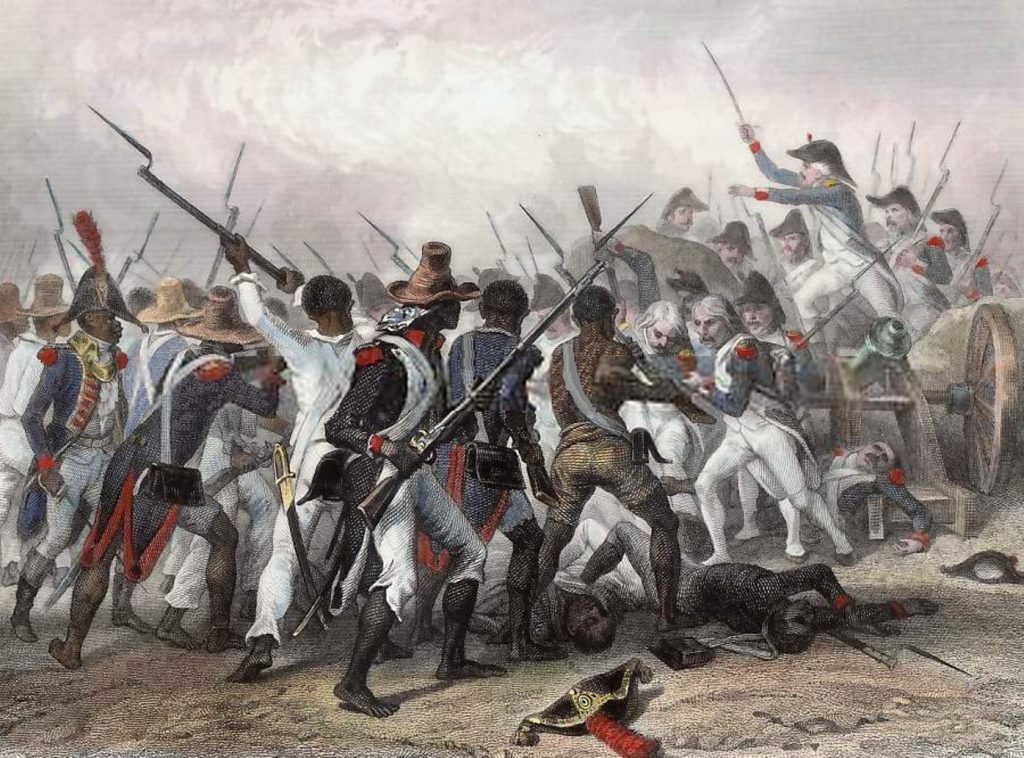This week was spent deep in curriculum research. After reading several historian’s books on the Haitian Revolution, I noticed that depending on who I was reading, the effects of the Haitian Revolution differed. I was reminded of just how much history is contested.

We obviously see it in our current political state. States around the country have been drafting legislation encouraging or condemning certain approaches to history in their public schools. Teachers are being unnecessarily confronted with absurd demands by people who have not been in a classroom since they were teenagers. Ironically, all of these debates, in a way, are actually living out the very aspects of the history discipline that we prize.
Of course, we should not condone the hyper-partisan views on history that tend to dominate the current debate. Condemning certain approaches to history that you may (even strongly) disagree with only provides fuel for “the other side” to condemn your preferred approach when they have power. Nobody wins. But maybe what is worth celebrating is the fact that we are acknowledging the contested nature of history, even if the mode in which the contestation is happening is unhealthy.
Removed from mainstream media’s gaze, historians have vigorously debated the nature and meaning of the past since the inception of the discipline. As we’ve addressed in past blogs, historiography is the study of historical writing. In it, we see that historians will collect and interpret differently from others, which can lead to various conclusions about the past. Or, perhaps the lens in which they see the past results in a particular focus that differs from others. Historians, not confined to the notion that history is merely the past, revel in this aspect of our discipline. We can have highly evidence-based discussions about the events of the past and still argue about the nature of those events.
For instance, this week, I’ve been reading about the Haitian Revolution. The Haitian Revolution was undoubtedly a turning point in world history. It was the largest slave rebellion to ever take place and it resulted in the first independent modern Black nation. In an era where racism, racial hierarchy, and slavery was the rule rather than the exception, the Black population of Haiti united in an unprecedented struggle of self-emancipation. Still, how did this profound event impact the surrounding world?
Well, it depends on which historian you go to for the answer. Some emphasize how often abolitionists cited the success of Haiti as a rallying cry for abolition in another part of the world. Other historians will point out that outside of Haiti, the economy driven by slave labor and the slave trade actually increased. These are clearly competing conclusions. The thing is, both perspectives have ample evidence to demonstrate their view. For every piece of evidence that reveals the contagion of liberty brought about by the Haitian Revolution, there is a piece that shows that there was little spread of antislavery fervor as a result of the triumph on that island.
This, to this historian, is not just tolerable, it’s a hallmark of why we study the past. We are ok that history is contested. We are excited to engage in a debate with other scholars. In fact, unless a book is truly the first book on a given subject, every published history book is an opposing argument on a given topic. History is an ongoing discussion. If it weren’t, the textbooks from 1925 would be equally relevant to us today as they were then.
Perhaps if we weren’t so dogmatic on what “the right history” was, we would be humble enough to engage in a dialogue, not a shouting match. At Thinking Nation, we hope to cultivate those skills for our students. We know that when we help students think historically, they are better prepared to be thinking citizens. Everyone is better for it.